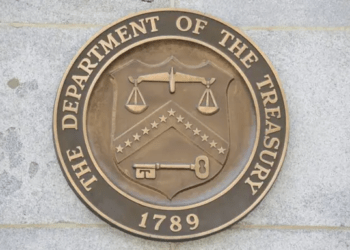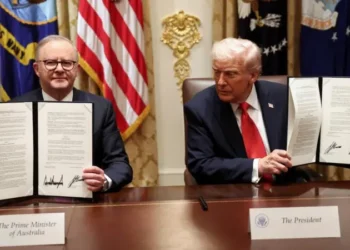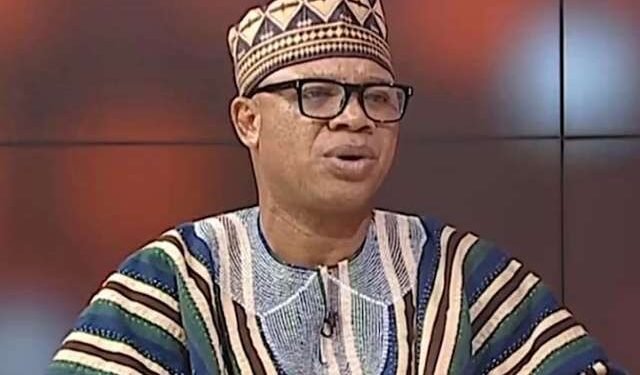U.S President Joe Biden and South Korean President, Yoon Suk Yeol have unveiled a new plan to counter North Korea’s nuclear threat, with the U.S. leader issuing a blunt warning that such an attack would “result in the end of whatever regime” took such action.
The new nuclear deterrence effort calls for periodically docking U.S. nuclear-armed submarines in South Korea for the first time in decades, bolstering training between the two countries, and more. The declaration was unveiled as Biden hosted Yoon for a state visit at a moment of heightened anxiety over an increased pace of ballistic missile tests by North Korea.
“A nuclear attack by North Korea against the United States or its allies and partners is unacceptable, and will result in the end of whatever regime were to take such an action,” Biden averred a news conference with Yoon.

Yoon divulged that the new commitment by the “righteous alliance” includes plans for bilateral presidential consultations in the event of a North Korean nuclear attack, the establishment of a nuclear consultative group and improved sharing of information on nuclear and strategic weapons operation plans.
“Sustainable peace on the Korean Peninsula does not happen automatically. Our two countries have agreed to immediate bilateral presidential consultations in the event of North Korea’s nuclear attack and promised to respond swiftly, overwhelmingly and decisively using the full force of the alliance, including the United States’ nuclear weapons.”
President Yoon Suk Yeol
Officials stated that the so-called Washington Declaration was designed to allay South Korean fears over the North’s aggressive nuclear weapons program and to keep the country from restarting its own nuclear program, which it gave up nearly 50 years ago when it signed the Nuclear Non-Proliferation Treaty.
Earlier this year, Yoon said that his country was weighing developing its own nuclear weapons or asking the U.S. to redeploy them on the Korean Peninsula.
The U.S. and South Korea also would coordinate more deeply on nuclear response strategy in the event of the North attacking the South. However, operational control of such weapons would remain in U.S. control, and no nuclear weapons are being deployed onto South Korean shores.
“We are not going to be stationing nuclear weapons on the peninsula,” Biden stressed.
The agreement also calls for the U.S. and South Korean militaries to strengthen joint training and better integrate South Korean military assets into the joint strategic deterrence effort.
As part of the declaration, South Korea will reaffirm its commitment to the Nuclear Non-Proliferation Treaty, an agreement signed by several major nuclear and non-nuclear powers that pledged their cooperation to stem the spread of nuclear technology, the officials said.
“Big Win” For South Korea

Duyeon Kim, from the Centre for a New American Security, opined that it was a “big win” for South Korea to be involved in nuclear planning.
“Until now, tabletop exercises would end before Washington’s decision to use nuclear weapons,” Kim said.
“The US had considered such information to be too classified to share, but it is important to practice and train for this scenario given the types of nuclear weapons North Korea is producing,” Kim added.
This new Nuclear Consultative Group ticks the box, providing the increased involvement the South Korean government has been asking for but the bigger question is whether it will quell the public’s anxieties.
Dr Cheong Seong-chang, a leading proponent of South Korea going nuclear, professed that while the declaration had many positive aspects, it was “extremely regrettable that South Korea had openly given up its right to withdraw from the Nuclear Non-Proliferation Treaty (NPT)”, adding that this had “further strengthened our nuclear shackles”.
READ ALSO: Asa Hutchinson To Formally Launch 2024 Presidential Bid























